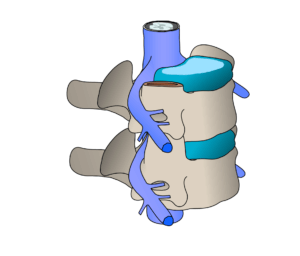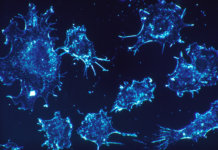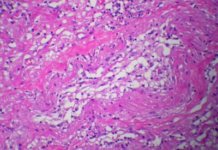Back pain and FOXO, an anti-aging equation!
We keep on saying that aging is a major risk factor for the development of many neurodegenerative diseases, cardiovascular pathologies or cancers. But aging is also very often associated with the emergence of musculoskeletal pain. Among them, low back pain is the most common disorder and it is believed that up to 75% of the population will be affected [1]. Moreover, up to 23% of these pains are chronic, meaning that they have been present for more than 3 months and are thus very disabling (severe loss of mobility)[1]. This chronic pain is caused by the degeneration of the intervertebral disc (IVD), a cartilage disc located between the vertebrae and used to cushion the shocks of the spine. Its degeneration is caused by changes in cells and their phenotype, as well as by impairments of the biochemical functions of the various IVD structures (annulus fibrosus and nucleus pulposus) [2]. However, very little is known about the molecular mechanisms upstream of these changes.
In a new research study [3], scientists focused on the FOXO (Forkhead box O) proteins in the degeneration of intervertebral discs. These proteins are transcription factors, playing a role in cell homeostasis and the maintenance of cell populations, and more generally in development, aging and longevity [2,4,5]. It has also recently been reported that the expression of some of these proteins was reduced in degenerated intervertebral discs in humans and during the aging of the spine of mice [6]. These characteristics prompted researchers to study the role of FOXO proteins in disc degeneration [3].

FOXO proteins control intervertebral disc homeostasis

Experiments were conducted on mouse models lacking FOXO proteins. A deletion of all FOXO isoforms within the IVDs led to degeneration of the intervertebral discs. This degradation is driven by the loss of many cells in the central nucleus (nucleus pulposus) of the disc. Similarly, by inducing unique deletions of each FOXO isoform, it appeared that FOXO1 and FOXO3 were dominant in the structure of the disc and played an important part in homeostasis. FOXO deficiency in discs has also been associated with defective autophagy and decreased antioxidant defenses. Finally, it has been shown that these growth factors induce resistance to oxidative and inflammatory stress in nucleus pulposus cells [3]. FOXO transcription factors are therefore important regulators of IVD homeostasis.
In this study, researchers investigated the role of FOXO proteins in the aging process of intervertebral discs. Experiments have shown that these transcriptional factors play a major role in maintaining the homeostasis of intervertebral discs, and their deficiency within the disc structures leads to degeneration. This is, to the scientists’ knowledge, the first study to provide evidence that these growth factors regulate homeostasis and aging of intervertebral discs[2]. Through their research, the scientists have shown that targeting FOXO proteins can become a therapeutic strategy to delay the age-related degeneration of the intervertebral discs that cause chronic low back pain.
References :
[1] https://www.lombalgie.fr
[2] Tiffany Kadow MD, Gwendolyn Sowa MD, PhD, Nam Vo PhD, James D. Kang MD, Molecular Basis of Intervertebral Disc Degeneration and Herniations: What Are the Important Translational Questions? Clin Orthop Relat Res (2015) 473:1903–1912 DOI 10.1007/s11999-014-3774-8
[3] Alvarez‐Garcia O, Matsuzaki T, Olmer M, et al. FOXO are required for intervertebral disk homeostasis during aging and their deficiency promotes disk degeneration. Aging Cell. 2018;e12800. https://doi.org/10.1111/acel.12800
[4] Rute Martins, Gordon J. Lithgow and Wolfgang Link, Long live FOXO: unraveling the role of FOXO proteins in aging and longevity, Aging Cell (2016) 15, pp196–207
[5] Ashley E. Webb and Anne Brunet, FOXO transcription factors: key regulators of cellular quality control, Trends Biochem Sci. 2014 April ; 39(4): 159–169 doi:10.1016/j.tibs.2014.02.003
[6] Alvarez‐Garcia, O., Matsuzaki, T., Olmer, M., Masuda, K., & Lotz, M. K. (2017). Age‐related reduction in the expression of FOXO transcription factors and correlations with intervertebral disc degeneration. Journal of Orthopaedic Research, 35, 2682–2691
Anne Fischer

Author
Auteur
Anne is studying medicine science at the Institute of Pharmaceutical and Biological Science in Lyon and she has graduated with a Bachelor’s degree in molecular and cellular biology at the University of Strasbourg.
More about the Long Long Life team
Anne étudie les sciences du médicament à l’Institut des Sciences Pharmaceutiques et Biologiques de Lyon. Elle est titulaire d’une licence en biologie moléculaire et cellulaire de l’Université de Strasbourg.
En savoir plus sur l’équipe de Long Long Life














